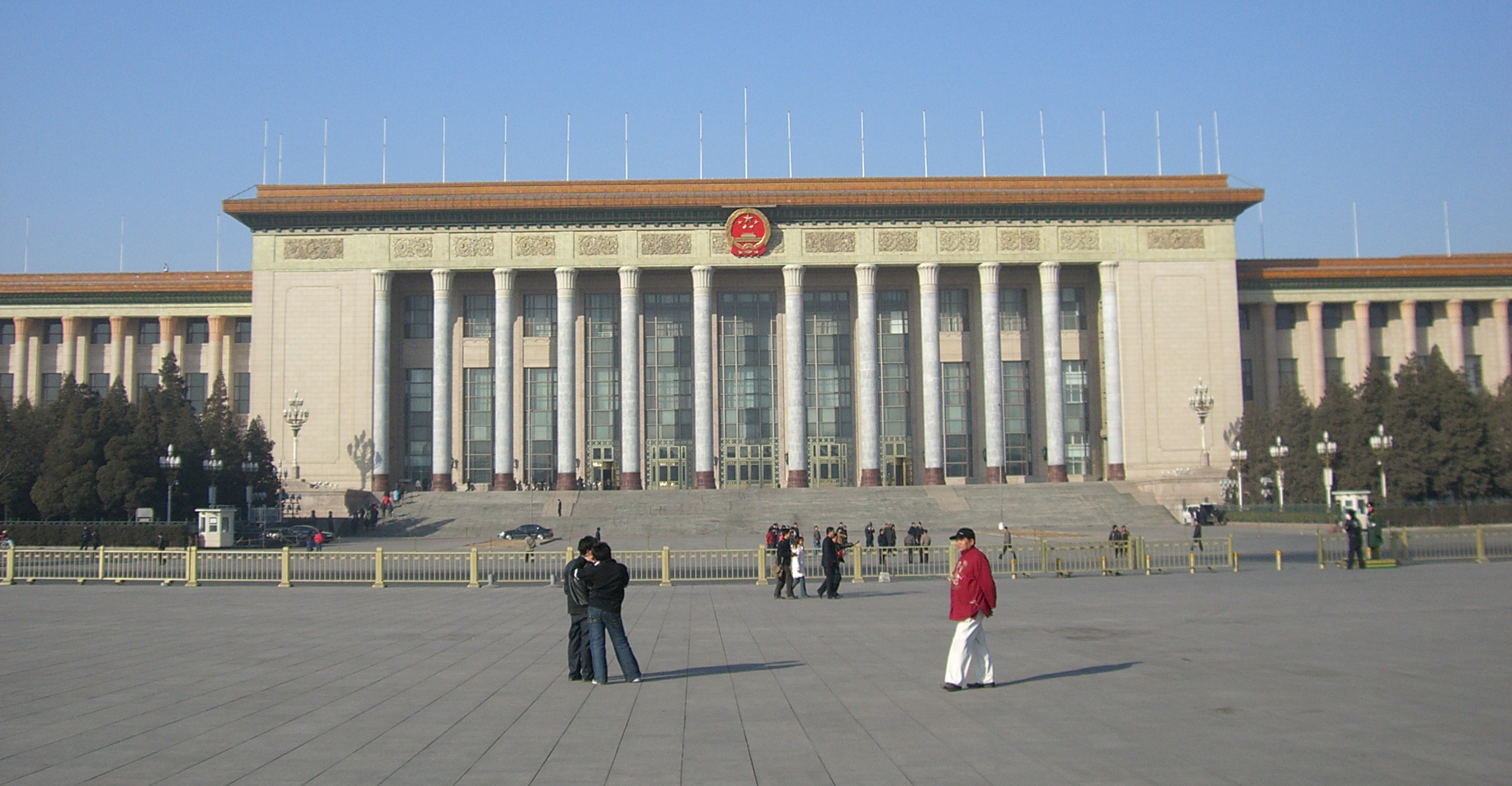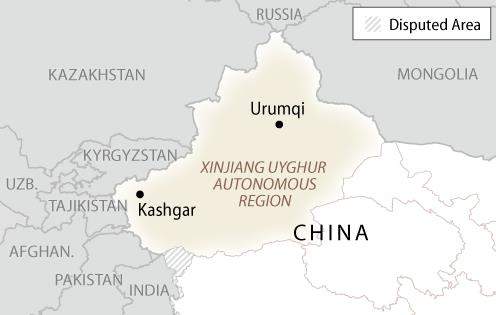
The Chinese government has exerted its authority over the Xinjiang region for generations, repressing the cultural identities of Xinjiang’s minorities.
In 2014, China began its “Strike Hard” campaign to eliminate extremism. China claims that the campaign’s objectives are to eradicate separatist movements and terrorism, with an emphasis on the Xinjiang region in northwestern China. Research on counterinsurgency suggests that brutal strategies like this do not lessen uprisings, but actually fuel resentment and create conditions that beget insurgency. For that reason, Beijing’s authoritarian counterinsurgency doctrine will not yield lasting success.
History of repression
The Chinese government has exerted its authority over the Xinjiang region for generations, repressing the cultural identities of Xinjiang’s minorities. Beijing has aggressively pushed for the Sinification of Xinjiang, colonizing the once Muslim majority region with Han Chinese citizens and subjugating local minority groups. In March 2017, for example, Xinjiang’s government passed anti-extremism laws, prohibiting many Islamic customs, including growing long beards and wearing veils in public. The Muslim minorities in Xinjiang, especially the Uighur people, felt deeply disenfranchised. Rising tensions culminated in violence in recent years. In 2009, 200 citizens were killed when riots erupted in Xinjiang as Uighur protesters demonstrated against Sinification and discrimination. In 2013 and 2014, isolated attacks in Xinjiang and Tiananmen Square were blamed on extremist separatists by the Beijing government.

Global Administrative Areas; DeLorme; NGA.
President Xi ordered Chinese authorities to “strike first” to prevent more terrorist attacks. As part of their operations, authorities have detained many Uighurs and other minorities in concentration camps. Authorities, who have categorized Muslim religious beliefs as a disease, assert that religious belief leads to extremism. Through these camps, therefore, the government claims it will prevent terrorism by eliminating extremist thoughts in its Muslim citizens. But many people have been categorized as extremists for simply privately practicing their faith.
The violations of human rights in Xinjiang have continued to worsen, despite international criticism towards Beijing’s policies. Most recently, the Chinese government has taken measures to forcibly sterilize Uighur women to prevent Uighur population growth. China’s efforts at imprisonment, reeducation, and indoctrination have previously elicited comparisons to the Holocaust due to the conditions of the concentration camps, but the program to stifle Uighur birth rates clearly crosses the boundary into genocide. (The United Nations’ definition for genocide includes five major acts intended to destroy an ethnic, racial, or religious group: killing members of the group, causing serious mental or bodily harm to group members, inflicting conditions on group members intended to cause their physical destruction, imposing forced birth control, and forcibly transferring children from the group to another group.) In March, the United States’ Holocaust Memorial Museum said that China’s practices against the Uighurs were consistent with crimes against humanity. Uighur exiles have continued to pressure the international community to investigate China for its genocidal practices and crimes against humanity, but Beijing appears unphased. The government continues to deny any wrongdoing.
Why repression will not work
Beijing asserts that its policies are designed to prevent terrorism and extremism. It claims that its approach balances compassion and severity. In reality, there is no compassion in their methodology. Chinese efforts to prevent an insurgency in Xinjiang are authoritarian and brutal. The government has imprisoned over one million citizens in detention camps, while surveilling the population and stifling any form of Islamic religious expression. Conditions in the camps are inhumane and prison-like, with people enduring torture and dying. These concentration camps are rife with brainwashing and indoctrination.
China’s method punishes Muslim minorities for their religious affiliation and identity, as opposed to punishing only those responsible for terrorist acts.
China’s method punishes Muslim minorities for their religious affiliation and identity, as opposed to punishing only those responsible for terrorist acts.
The Chinese government says its work is vital in the global fight against terrorism. Authorities claim to have arrested nearly 13,000 “terrorists” since 2014. Much of the data on the success of China’s counterterrorism efforts, however, comes from a white paper published by the Chinese government. The quality of this data is questionable at best and entirely fabricated at worst. Authorities laud the decline in terrorist attacks as evidence that their strategy is warranted. This “victory” will not endure.
China’s method punishes Muslim minorities for their religious affiliation and identity, as opposed to punishing only those responsible for terrorist acts. China’s use of collective punishment and the increasing repression of the Xinjiang minorities, in addition to the paternalistic government rule, are prime examples of bad COIN practices. China may have achieved tactical, or even operational, victories by locking up its citizens and restricting personal freedoms, but this success is only temporary. Beijing has likely traded short-term tactical gains for major strategic loss in the long-term.
After all, the first rule of counterinsurgency doctrine is that effective COIN operations should not create more enemies than they eliminate. China has ignored this basic principle. When the detained citizens eventually re-enter society, they will likely have stronger grievances against the government. The isolated terrorist incidents that occurred in 2009-2014 were a reaction to decades of oppression against the Uighur people. Terrorism often occurs along with insurgency. What began as a low-level separatist movement and isolated terrorist incidents will explode into a real insurgency against the Chinese government, unless the root causes are addressed.
To create foundations for lasting peace, Beijing would have to reconcile with the diversity in Xinjiang and work with, not against, the population. Counterinsurgency doctrine emphasizes the importance of winning population support when combating an insurgency. China has done the opposite of that. Minority groups have had their rights, livelihoods, and dignity stripped away. They are being imprisoned, forcibly sterilized, and killed. Inclusive and representative governance from Beijing, or semi-autonomous governance, would be valuable first steps in addressing this long-term problem. Insurgencies are political at their roots. Good counterinsurgency addresses the political concerns, and uses military and repressive force sparingly. Beijing should restore the rights of the Xinjiang minorities and work to restore their economic opportunities. The people of Xinjiang must feel represented and respected by the central government. Ideally, the Islamophobic “anti-extremism” laws should be repealed as a preemptive measure to lessen the chances of a coming insurgency.
China’s current path will certainly not resolve its terrorism problem. China has created more potent root causes for unrest in Xinjiang. Countries that choose to use brutal and repressive tactics to eliminate peaceful options for dissent intensify grievances and increase incidences of domestic terrorism. The government could have negotiated terms to address the grievances of the population, but it instead chose the path of most resistance. The people have been brutally repressed, they have been stripped of their cultural identities, and they have been held captive in detention centers. They have lost their livelihoods, been discriminated against, forced to give up their religion, and tortured in a modern Holocaust. Uighurs who were deemed “model citizens” were sent away to prison camps. Xinjiang’s minorities may decide that, if the government will hunt them down and imprison them for living peacefully, then they have very little to lose by rising up in rebellion. The citizens of Xinjiang have many reasons to rebel against Beijing. Until their grievances are addressed, China’s terrorist and separatist problems will endure, and worsen. It is not if an insurgency will emerge, but when.
Alden Leader is a Section Editor for Global Governance for the Georgetown Journal of International Affairs. She is a recent graduate of Georgetown University’s Security Studies Program and holds a bachelor’s degree in Political Science and International Relations from Northwestern University. The views expressed in this article are those of the author and do not necessarily reflect those of the U.S. Army War College, the U.S. Army, or the Department of Defense.
Photo Description: In front of the Great Hall of the People in Tiananmen Square in Beijing.
Photo Credit: Diego Delso, delso.photo, License CC-BY-SA




